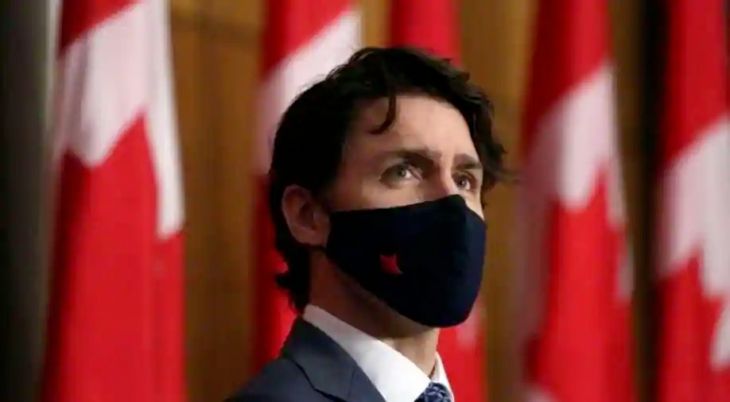Canada faces some challenges as voter frustration sets in domestically.
A country usually requires a set of broadly acceptable values in order to enjoy common identify and provide a basis for consensus on key policies and programs.
It requires an accepted vision of history that serves as the foundations for the definition of the nation and a common culture to motivate its growth.
In the 21st century globalism and technology are giving smaller populations access to a global market and allowing sub-cultures to express themselves to a global audience.
Canada must face this reality with a few challenges.
Canada consists of three founding groups: the Anglophones, the Francophones, and the indigenous First Nations.
Each has its own history, its own cosmovision and its own values system.
Added to this triad are the millions of immigrants who have come to Canada since its founding. Each group has brought its value system, language and cultural baggage. While these immigrants have adapted to one of the two major cultural groups in Canada, they have done so while preserving their traditions thereby forging their own self-image as Canadians and their own vision of a Canadian identity.
English Canadians base their concept of human rights on the rights of the individual. The Charter of Rights and Freedoms underscores this belief. Nevertheless, the Constitution limits its application by containing a “notwithstanding clause” that allows provincial governments to bypass the constitution and the Charter of Rights in special circumstances.
Quebec advocates the paramountcy of societal rights over those of the individual. Successive provincial governments have argued that their primary role is to ensure the survival of the French language and culture given the challenges posed by the real or imagined pressures posed by the English language majority in North America. Globalization, with English as its lingua franca, adds a further perceived threat to the survival of French in Quebec.
Quebec’s national vision is based solely on Quebec. Rarely will the Quebec government define itself as Canadian or promote cultural icons and products that are not Quebecois. Often, its international activities aim at creating an image of an independent nation rather than as an integral part of Canada.
Canada’s First Nations have a good number of individual languages and cultures that have been marginalized until recently. First Nations objectives are to seek redress for past injustices, develop and promote their own cultures and values, and try to survive in a globalized world.
Their belief system is tribal, and their claims are for the lands that they believe were stolen by colonial powers and that now constitute most of some of Canada’s largest cities.
In addition, they decry the rape of the environment by a private sector abated by the federal and provincial governments, and the environmental degradation that attacks their respect for nature that underpins their spiritual beliefs.
Quebec’s recent laws against the wearing of religious symbols by public servants (widely perceived by English Canadians as illegal and racist, aimed primarily at Muslim women who wear the hijab) are opposed by a majority of Canadians outside Quebec but are supported by a good majority of Quebecers. The passage two weeks ago of laws drastically curtailing the rights of the English minority also goes against the grain of both English Canadians and First Nations advocates.
Added to this is the feckless leadership demonstrated by Canadian Federal leaders from all parties who refuse to confront the Quebec government and parliament since a quarter of Canada’s parliamentary seats are in Quebec and they are essential to win national elections.
This results in a perfect storm of public frustration with Canada’s political class and a sense of drift with respect to national identity and values.
This isolation of the founding cultures from one another deprives Canadians of a common identity and an ability to create a synergy that can unite all Canadians.
Voter frustration with government policies and never-ending debates is contributing to the growth of extremists on the right and the left. The leading candidate for the leadership of the main opposition Conservative Party sounds like a clone of U.S. right-wing Republicans. Those on the left appear to oppose the extraction and transportation of natural resources and raw materials, essential for Canada’s economic sustenance and growth.
Polarization is growing in Canada, and the resulting growth in populism on the right and “woke-ism” on the left is creating an atmosphere of confrontation and potentially violence that had generally eluded Canada until recently.
What we have now are a group of political leaders who focus on everyone’s parochial concerns and resolve none. When everything is a priority, nothing is.
What Canada needs and sorely lacks are political leaders who focus on the two or three major concerns of a broad range of Canadians and propose and implement tangible solutions. This would encourage voters to increase their belief in the viability of the political system and reduce electoral cynicism.
Canada is a country with competing value systems, a frustrated electorate, and federal and provincial leaders unable or unwilling to fashion and promote a common national vision and identity.
I would like to believe that Canada will overcome its current challenges and create a broad enough political space in which all can fit.
However, given current dynamics and the lack of competent and capable leaders on the horizon, I am not overly optimistic.
Sigue leyendo: Nacionalismo de Quebec
Edición: Laura Espejo
Dos hombres más resultaron heridos
Miguel Améndola
Se destacaron en sesión logros como el crecimiento de pernoctas, cruceros e incremento de oferta hotelera
La Jornada Maya
Cecilia Patrón impulsa la rehabilitación de espacios públicos en colonias del sur y oriente para fortalecer la convivencia y calidad de vida
La Jornada Maya
Seguiremos siendo uno de los destinos predilectos para este sector, señala el secretario de Turismo estatal
Ana Ramírez
